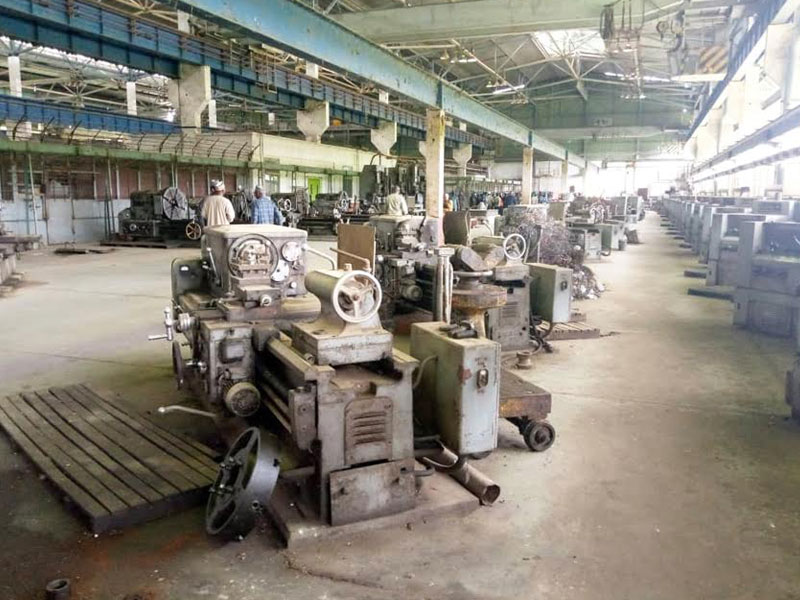Regenerating Ajaokuta Steel Company
The development of Ajaokuta Steel Company, which was designed to produce 5.2 million tons of various types of steel products, has suffered a lot of setbacks over the years. It was reported to have swallowed over $8 billion over the years. Ajaokuta Steel Company is projected to generate over 500,000 employment for millions of jobless […]

The development of Ajaokuta Steel Company, which was designed to produce 5.2 million tons of various types of steel products, has suffered a lot of setbacks over the years. It was reported to have swallowed over $8 billion over the years. Ajaokuta Steel Company is projected to generate over 500,000 employment for millions of jobless Nigerians, and equally generate high revenue for Kogi State and the federal governments.
The efforts of many advocates for the revival of the Ajaokuta Steel Company over time have not yielded the desired results. Neither the successive governments over the years see it as a project that must be achieved but the endless promises. In fact, Ajaokuta Steel Company later became a veritable campaign tool for many politicians at all levels, and the federal government budgeted for it every year for the personnel and overhead costs for producing nothing.
Thanks to President Bola Amed Tinubu for the creation of the Federal Ministry of Steel as a separate entity to care for the issues of steel development in Nigeria and the appointment of Mr Shuaibu Abubakar Audu from Kogi State as the Minister of the Ministry, who hails from the most dominant Steel Deposit State in Nigeria.
The creativity of separating this important sector from the Ministry of Mines and Steel Development will definitely force the needed development into the sector.
This initiative will reduce import dependence and enhance local production of machinery, thereby generating job opportunities for the millions of jobless Nigerians, if it is properly followed through. The production of irons and steel in Nigeria will reduce their importation, thereby reducing the cost of building materials, construction of houses, bridges, and other machinery needed for further production of goods and services.
The newly appointed Minister of Steel should see this as a challenge and a great opportunity to bring the necessary positive changes to the sector and live up to the expectations, as Nigerians are tired of the unnecessary excuses and lip service from successive governments over the years.
I am optimistic about the new development to yield positive results, considering the capacity of the newly appointed minister, young, full of energy and knowledge to work round the clock to achieve all that is achievable if the necessary political will is given. In fact, it will be a self-defeat if the newly appointed Minister of Steel fails to revive Ajaokuta Steel Company. It is believed and expected that his local knowledge of the issues, and international expertise will be of great importance and advantage to regenerate Ajaokuta Steel Company and other steel development in the entire Nigeria.
However, it is important for the government of President Bola Ahmed Tinubu to realise that most Nigerians are happy about this development and will give all the needed support to achieve the intended results that will be of great benefit to all Nigerians. It is, therefore, imperative for the government to give the right support to the minister and his team.
Let it be that the right tools are given to him, and fail to perform for Nigerians to hold him accountable than the other way round, considering the lingering issues surrounding the steel development in Nigeria, especially the Ajaokuta Steel Company.
The collaboration of the relevant stakeholders to revive the Ajaokuta Steel Company is necessary at this point in time, considering the many years of abandonment and to factor in the concerns of all the interest groups at the local, national, and international levels. This is necessary for unanimous decisions that will guarantee the urgent and smooth operationalisation of Ajaokuta Steel Company. And the time to act is now.
Omale Omachi Samuel, Centre for Social Justice, Abuja
